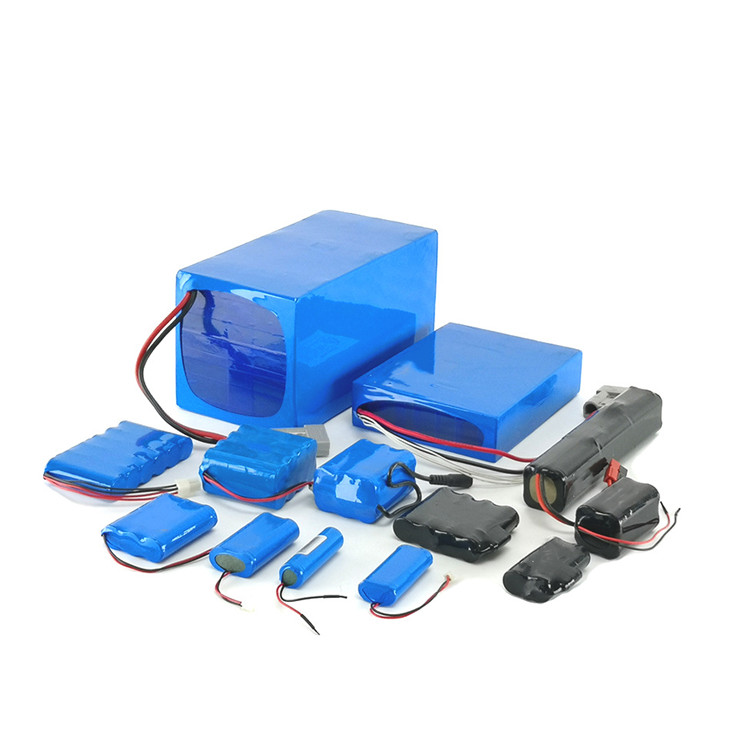The detail differences between lithium-ion batteries and lithium-polymer batteries
July 12, 2021
Lithium-ion battery is a secondary battery (charging battery), which mainly relies on lithium-ion moving between positive and negative poles. During charging and discharge, Li + is embedded and embedded between two electrodes: when charging, Li + is unnested from the positive electrode and embedded into the negative electrode, the negative electrode is in a lithium-rich state; the opposite during discharge. The application prospect of lithium-ion batteries is very broad, which is mainly used in mobile phones and laptops, and is the representative of modern high-performance batteries.
Lithium polymer battery Lithium polymer battery, also known as polymer lithium battery, is a chemical battery. Compared to previous batteries, it has the characteristics of high energy, miniaturization, lightweight. Lithium polymer batteries have ultra-thin characteristics, can match the needs of some products, made into different shapes and capacity of batteries, theoretically a minimum thickness of up to 0.5mm.
The difference between lithium-ion batteries and lithium-polymer batteries
The positive and negative materials used in the polymer lithium ion battery are the same as the liquid lithium ions. The cathode materials are divided into lithium cobalt ate, lithium manganate, ternary materials and lithium iron phosphate materials. The negative is graphite, and the working principle of the battery is basically the same. The main difference lies in the difference of electrolytes, liquid lithium-ion batteries use liquid electrolyte, and polymer lithium-ion batteries are replaced by solid polymer electrolyte, this polymer can be “dry” or “colloidal”, most of which currently use polymer gel electrolyte.
Lithium-polymer battery and lithium-ion battery which is good?
Lithium polymer battery is better. Lithium polymer battery is a lithium-ion upgrade product of lithium-ion battery, compared to the popular lithium-ion battery, it has large capacity, small volume (thin), safety (will not explode) and other advantages. However, since the replacement takes a certain time for the whole industrial chain, its cost (cost) is still relatively high, only used in high-end digital products (ultra-thin laptops, etc.).
The advantages of lithium polymer battery mainly have the following aspects:
1.The operating voltage, lithium polymer cell batteries is up to 3,6v~3 and 8v is much higher than the 1, 2V voltage of nickel-hydride and nickel-cadmium batteries.
2. lithium-polymer batteries have a large capacity density of 5 times 1,5~2,, or higher than nickel-hydrogen or nickel-cadmium batteries.
3.lithium polymer battery has small self-discharge and small capacity loss after long placement.
4. lithium polymer battery has long life and normal cycle life can reach more than 500 times.
5. lithium polymer battery has no memory effect and does not have to empty the remaining power, easy to use before charging.
6. Good safety performance, lithium polymer battery adopts aluminum-plastic soft packaging in structure, different from the metal shell of the liquid core. Once a safety hazard occurs, the liquid core is easy to explode, while the polymer core will only drum at most.
7. small and thinner: the lithium polymer battery is ultra-thin and can be assembled into credit cards. Ordinary liquid lithium adopts the method of first customized shell and then plugging positive and negative electrode material, which has a technical bottleneck below 3 or 6mm, and no polymer core. The thickness can be less than 1mm, which meets the demand direction of the current mobile phone.
8. light weight
Lithium polymer batteries use a polymer electrolyte battery without a metal shell as a protective outer package. Polymer battery is 40% lighter than steel shell lithium of the same capacity specification and 20% lighter than aluminum shell battery.
9. Large capacity
The polymer lithium battery is 10~15% higher capacity than the steel shell battery of the same size and specification and 5~10% higher than the aluminum shell battery, which becomes the first choice for color screen mobile phones and MMS mobile phones. Now most of the new color screens and MMS mobile phones on the market also mostly use polymer cells.
10. Small internal resistance
The internal resistance of the polymer lithium battery core is smaller than the general liquid core. At present, the internal resistance of the domestic polymer core can even be below 35m Ω, which greatly reduces the self-power consumption of the battery, extends the standby time of the mobile phone, and can completely reach the level in line with international standards. This polymer lithium battery that supports a large discharge current is ideal for a remote control model, becoming the most promising alternative to NiMH batteries.
11. shapes are customizable
Manufacturers are able to make the right size without being limited to the standard shape. Polymer lithium battery can increase or reduce the core thickness according to the needs of customers, develop new core models, cheap price, short mold cycle, some can even be tailored according to the shape of the phone to make full use of the battery shell space and improve the battery capacity.
12. discharge characteristics are good
The polymer lithium battery adopts a colloidal electrolyte, which has a stable discharge characteristic and a higher discharge platform than a liquid electrolyte.
13. protection board is simple design
Due to the use of polymer materials, the polymer lithium battery core does not fire, no explosion, the core itself has sufficient safety, so the protection line design of the polymer battery can consider the omission of PTC and fuse, thus saving the cost of the battery.








 Sales
Sales Sales
Sales Sales01
Sales01
 Sales Manager
Sales Manager